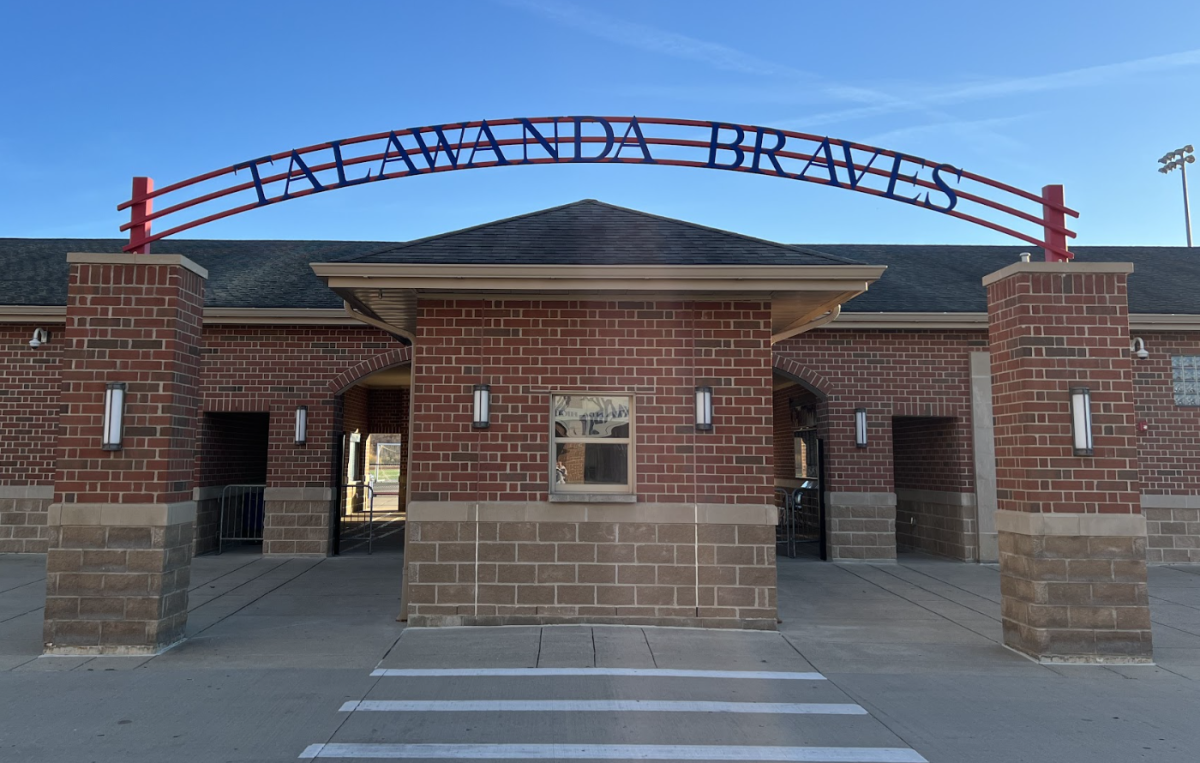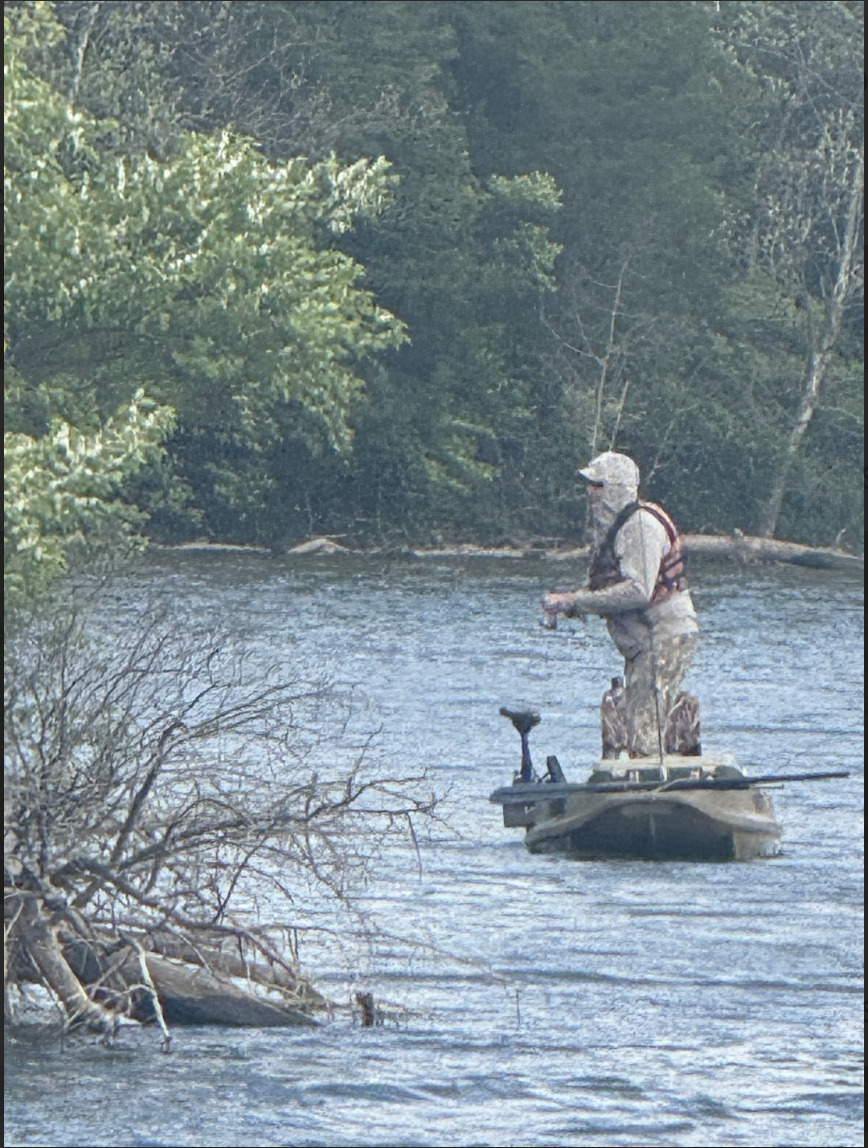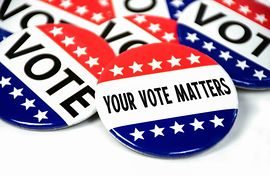Visiting Talawanda’s athletic facilities, one would have no idea the mascot is “the Brave.”
Five years after the Talawanda Board of Education officially changed the name and mascot of its athletic teams from the “Braves” to “Brave,” the previous name, which was considered offensive by Native American members of Talawanda’s community, still appears on stadium signage, turf and uniforms.
“The symbols are usually offensive and people are not mascots,” said Pat Meade, president of the Talawanda Board of Education, who has served on the board since 2017. “People are people.”
When the name was changed to the “Brave” in 2018, the Talawanda Board of Education determined that they would alter their image. The previous mascot depicted “a male with fire engine red skin wearing a large earring and feathers,” according to the Oxford Citizens for Peace and Justice website. This image was displayed on papers, awards and programs, which Meade said was easy to get rid of. Today, “the Brave,” rather than “Braves,” is used for Talawanda spirit gear, brochures, letterhead and on the district website.
However, the existing signage and athletic equipment still reads “Talawanda Braves.”
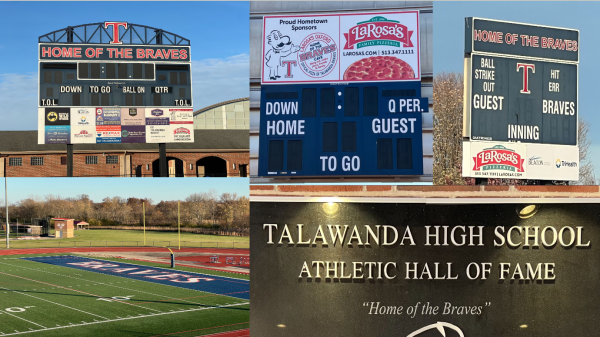
Holli Hansel, the director of communications at Talawanda said that the plan was to replace the retired image over time. Everything from the scoreboards to the athletic uniforms will still read “Braves,” as long as the items don’t need immediate replacement.
“One of the things we decided at that time, because of our financial situation, was that logos, etcetera, would be changed as they wore out,” Meade said. “The football field, when they need a new turf, which lasts about ten years, it’ll be changed. That way the district wasn’t sinking money into it.”
He also said that the Board of Education should not be taking new sponsors who print “Braves” on their banners.
Meade said there was no exact number for how much replacing the equipment would cost because it was never something they explored.
“We just decided, at that time, it would sort of happen by attrition,” he said.
School board members who disagreed with the decision to change the mascot estimated that to replace the gym floor and football turf would cost nearly $1 million.
Hansel said that “no additional expense, out of the ordinary expense or extra financial burden was associated with the change.”
The name change in 2018 was controversial.
Maggie Lubbers, a 2019 graduate of Talawanda, said she supported the name change.
“I think, given the lack of a positive relationship with indigenous tribes, that we should have changed the name,” she said. She recalled a white student wearing an indigenous headdress to football games during the debate.
“The guy who wore the headdress passed it around and multiple people wore it at football games,” she said.
Lubbers said that while she understood that there were budget issues within the district, she believes the alterations to the signage should have been a priority.
“I think just changing to ‘Brave’ and not making an effort to fundraise to eliminate old ‘Braves’ imagery is a very performative move on the school’s part,” she said.
Meade said the individual who wore the headdress to the game regretted his actions and voiced his apologies at the Board of Education meeting in November 2018.
“He wanted to keep the mascot,” Meade said, “but he realized that his wearing of the Indian headdress was inappropriate.
He said he has not seen this behavior since at any sporting event.
At that same meeting, Meade said 17 Native Americans came from around the area to explain why the mascot was offensive.
“They spoke in their native language when they got up to the mic, and then translated into English and talked about why it was offensive,” he said. “It was absolutely fascinating and powerful.”
Inside of a trophy case in the cafeteria, there is a statue on display of “Talawanda Brave,” which was gifted to the school in 1993 by a former student and represents the historically inaccurate image of a Native American.
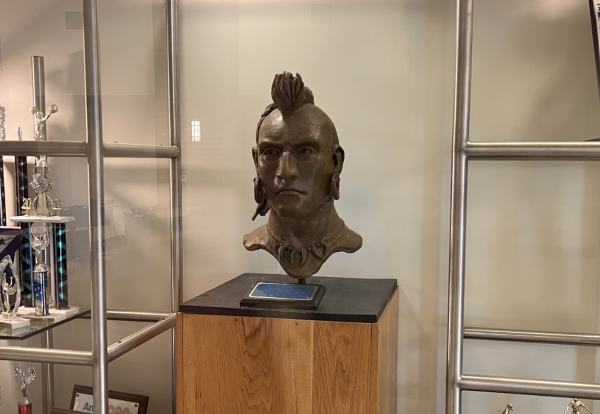
Meade wasn’t sure why this statue was still standing.
“It’s there,” Meade said, “and it could be taken out pretty easily, obviously. I’d have to look into why we haven’t done that yet.”
He also said that as new trophies and awards were earned by athletes at the school, the old ones, which still read the previous mascot name, would be moved out and put into storage.
“Those things would be eliminated little by little just because you’re getting new trophies,” Meade said.
Jody Asher stood on the other side of the debate. He is a resident of Oxford and was the leader of the online group called “Save Our Braves,” which he said had a goal of “retaining the historically accurate imagery that we used as a school system prior to 2018.”
Asher wrote in a private message that he had “handed a petition with 1,300 plus signatures on it and it was ignored.”
“Many other community members, many of whom had played sports and graduated from Talawanda High School, did not want a change and were not supportive of the change when it occurred,” Hansel said.
There were 28 members of the community who chimed into the visitors and public participation section of the November 2018 Board of Education Meeting. There were almost an equal number of supporters on each side of the issue, with a few citizens who didn’t take a stance, according to the meeting highlights published by the district.
The Board of Education voted 3-2 in favor of changing the name to “Brave.”
Asher also wrote that regardless of the budget, Talawanda should not focus on changing signage, but rather on fixing busing for athletes and high school students which disappeared after a levy to support the school district failed in 2022.
“Until those are restored,” he said, “what our turf and scoreboards say is moot.”
Meade also said that the community understands that the school district is struggling financially.
“They’re reasonable people who understand financial gravity,” Meade said, “but they would love to see it gone sooner than later.”
“I think the kids have moved on,” Meade continued. “They used to scream ‘Home of the Braves’ at the end of the national anthem at every event, and they now say ‘Brave.’”


